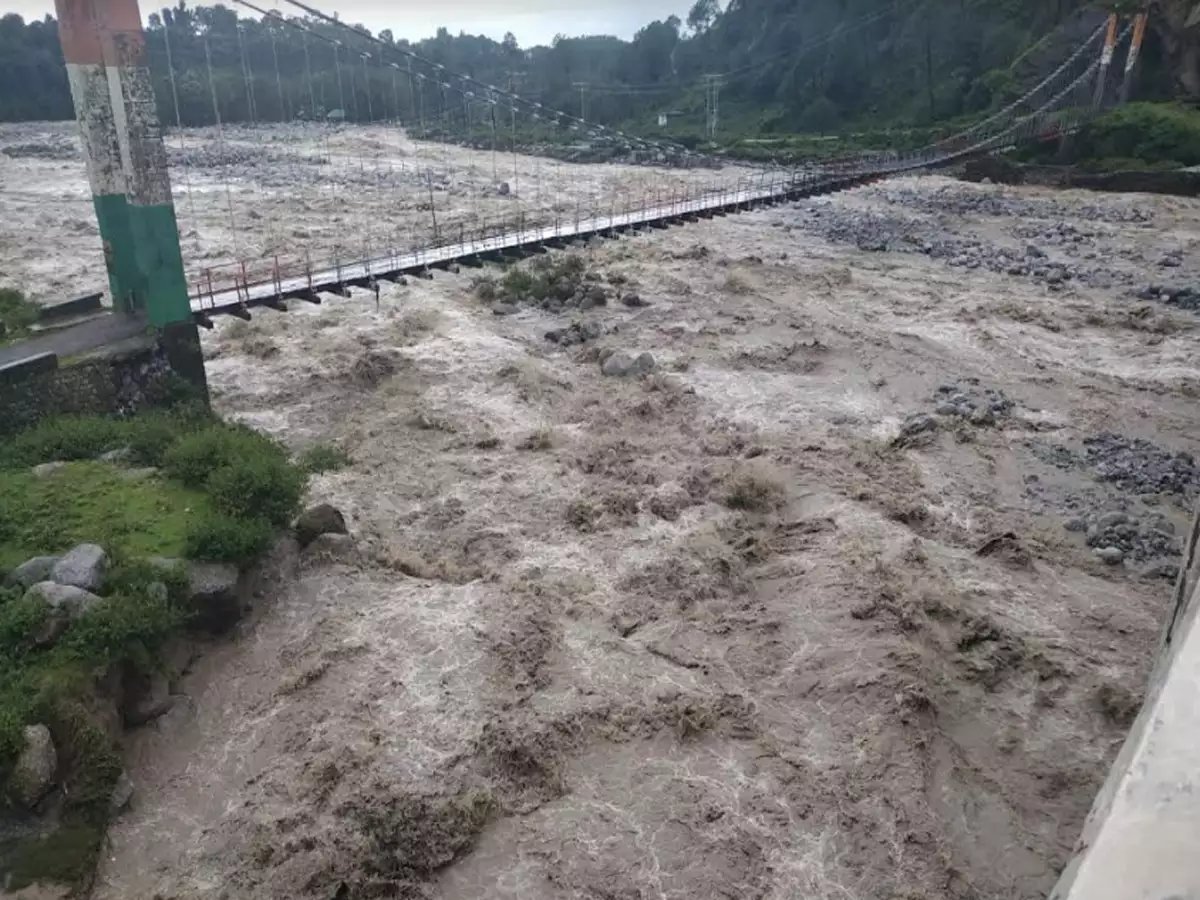
After Uttarakhand disaster, Himachal villages oppose hydel projects plan
Fearing an Uttarakhand-like catastrophe, residents of Lahaul-Spiti district in Himachal Pradesh have raised their voice against proposed hydel projects in the ecologically fragile Chenab and Chandra river basins, home to a large number of glaciers. At least eight gram panchayats, including Tandi, Rashil, Bardang, Miyar, Goshal and Jispa, in the district have vowed to oppose hydel projects.

Fearing an Uttarakhand-like catastrophe, residents of Lahaul-Spiti district in Himachal Pradesh have raised their voice against proposed hydel projects in the ecologically fragile Chenab and Chandra river basins, home to a large number of glaciers. At least eight gram panchayats, including Tandi, Rashil, Bardang, Miyar, Goshal and Jispa, in the district have vowed to oppose hydel projects.
Tenjin Wang, head of Goshal panchayat, told The Federal that the eight gram panchayats have passed a resolution against hydel projects in the valley. “We oppose the decision of the government to set up power projects in Lahaul-Spiti as it will adversely affect the ecology of the area. Uttarakhand floods have shown that a similar situation could happen here as well. The people in the valley are scared,” he said.
The Himachal Pradesh government has signed MoUs with Satluj Jal Vidyut Nigam Limited (SJVNL) and National Thermal Power Corporation (NTPC) for 16 mega hydel projects and 40 mini projects for the Chenab and Chandra basin for a combined power generation of over 5,000 MW.
Also read: Breach in temporary lake may have caused Uttarakhand flash flood
The Chenab basin has a highly fragile eco-system in Lahaul and Pangi valleys. The Lahaul region has over 100 glaciers, including Bada Shigri which is the largest in Himachal Pradesh. The locals say they will not allow companies to start work on the projects on the basin.
On Sunday evening, members of the Goshal gram panchayat met and decided not to grant a no-objection certificate to the 104 megawatt Tandi hydropower project proposed to be built by SJVNL, a joint venture of the state and Central governments. Virendra Singh, head of Tandi village, said, “The locals are worried that construction activity and building of reservoirs will not only destroy the glaciers but put human lives at risk. We are opposed to any trees being cut.”
Also read: Centre’s proposed eco clearance rules jeopardize NE’s fragile ecology
Vikram Katoch, vice-president of NGO Save Lahaul Samiti, told the media that the residents of the district were united in their opposition to setting up of more hydel projects in the Chenab basin. He said campaigns would be launched across the district to spread awareness about the ill-effects of power projects.
Thirteen social rights groups, environmental organisations and NGOs have jointly accused the Himachal Pradesh government of allowing large-scale mega-hydel projects and construction of large dams in the fragile high-altitude area.
“According to the State Disaster Management Authority, most of Himachal’s hydropower projects in operation or under construction fall in areas highly vulnerable to various hazards such as landslides and floods.
The Avay Shukla Committee report presented to the High Court in 2011 had recommended a moratorium on new hydropower projects in the state. But the state government ignored the report completely,” said a joint release of the activists.
Researchers at Himachal government’s state centre on climate change have also red-flagged an “alarming increase” in the number of glacial lakes in the state due to the rapidly changing extent of glaciers. In a study published last year, they warned that bursting of such moraine-dammed lakes can cause disastrous flooding in downstream areas.
On February 3, Buddhi Chand, the head of Triloknath panchayat, wrote to the President on the behalf of over a dozen villages falling under Triloknath and Shakoli panchayats, seeking cancellation of the Badrang hydro project allotted to SJVNL. He alleged that gram sabhas and forest rights committees are not being consulted before the allotment of hydel projects in Lahaul, even though it is a scheduled area.
“Heavy snowfall always brings the threat of avalanches, and in 1979, an avalanche destroyed much life and property here. Lahaul is also sensitive to earthquakes as it falls in a high seismic zone. The mountains here are composed of weak rocks and any blasting operation during the construction of hydel projects may prove disastrous. It may also lead to drying up of water sources and destruction of pasture land,” he wrote.

